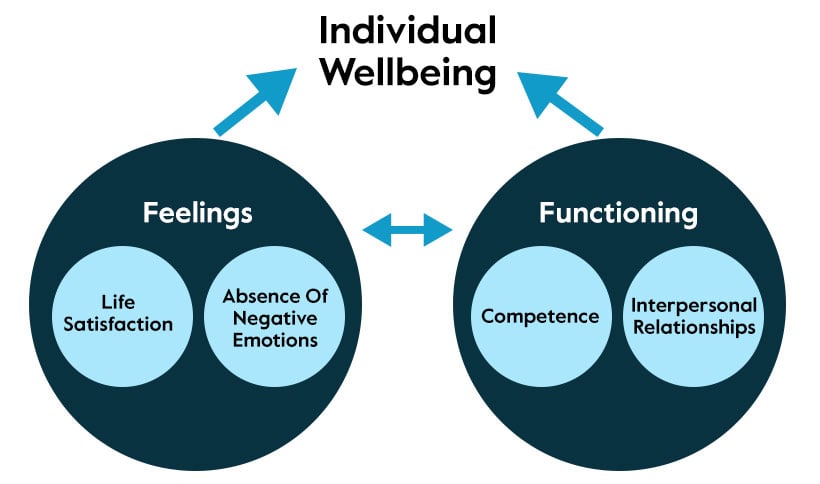Supporting wellbeing in school: enabling young people to fulfil their potential
By Dr Ros McLellan, Associate Professor, Faculty of Education, University of Cambridge Here at Cambridge Insight, we’re proud to be collaborating...

Login | Support | Contact us
Irenka Suto : Apr 28, 2022 1:58:32 PM
4 min read

Understanding, predicting and facilitating educational success is important for every teacher. Many would agree that when it comes to supporting students, we need to take a holistic approach. Nurturing all aspects of a student’s growth acknowledges the broader social, societal, and economic responsibilities of education.
There are several different areas of insight that every teacher can gain, to build up a profile of each child. Our baseline and entrance assessments offer insight into students’ cognitive skills and capabilities. They also assess cross-curricular knowledge, skills and understanding, such as vocabulary and key mathematical concepts.
However, just as students differ from each other in these areas, they also differ in their personal attributes. Appreciating each student as a whole person can really help to understand how well they are doing in school, and why.
Personal attributes range from stable ‘traits’ to much more transient ‘states’. Personality traits, such as conscientiousness for example, are reasonably stable. They don’t change much over time.
Wellbeing, on the other hand, is a lot more transient. It is a state rather than a trait and it can fluctuate from month to month, week to week, or even day to day. This means it is worth monitoring. Many schools strive to create a culture of care, where everyone looks out for one another. Understanding and tracking wellbeing can be a key contributor to a positive school ethos.
Across the whole of Cambridge University Press and Assessment, we’ve been exploring what wellbeing means in our schools.
We're drawing on the wellbeing research of Dr Ros McLellan, Susan Steward, and Tania Clarke in the Faculty of Education within the University of Cambridge. Like them, we advocate a wellbeing-for-all perspective, which lies within the flourishing positive psychology movement.
Put simply, psychological wellbeing is a combination of both feeling well and functioning well. This can relate to any domain of life, and in our context, this means feeling and functioning well in school.
How we feel is about how satisfied we are with life overall from our own, subjective point of view. It is about recognizing and managing positive and negative emotions.
How we function is to do with our personal development. It is about how much we can engage in meaningful activities and interact with others and our context. It is about learning to accept who we are and what we could be, to be fulfilled.
Students with high levels of wellbeing feel they are enjoying their education, getting the most out of it, and reaching their potential. This can be academically, socially, and in other areas of school life such as sport and music.
It is worth emphasising that psychological wellbeing is subjective. This means students in the same physical circumstances can have different levels of wellbeing.
In this conceptualisation of wellbeing, Ros McLellan and Susan Steward bring together two long-standing strands of psychological research. Feelings and functioning are sometimes known as hedonic wellbeing and eudaimonic wellbeing.
Although modern theories of wellbeing stem from the psychologists of the 1960s, these names reference much older thinking. In Ancient Greece there were two contrasting schools of thought around what constituted the good life. Aristippus of Cyrene suggested that pleasure (hedonia) is the sole good in life. Aristotle identified eudaimonia, or ‘activity expressing virtue’ as an ethical theory for living.
In their research on wellbeing in schools in England, Ros McLellan and Susan Steward explored feelings and functioning further, identifying four areas or types of wellbeing:

Life satisfaction is the extent to which students experience contentment and overall life satisfaction. We all want to experience feelings of enjoyment, excitement, having lots of energy, and looking forward to the future. In school this means students feeling energised and excited about what they are learning, plus other activities and events such as clubs and school trips.
In contrast, negative emotions are feelings such as anxiety, stress and sadness. Nobody wants to experience these feelings for much of the time. Such emotions can distract students and prevent them from doing their best in school, whether that’s academically or in extra-curricular activities.
Interpersonal wellbeing is all about the extent to which students experience feeling connected to others in school, that those people care about them, and that they are valued. It matters because relatedness is a core psychological need. We are social beings and need a sense of belonging.
Finally, competence wellbeing is the extent to which students experience competence, self-confidence, fulfilment, and purpose. Self-actualisation is another core psychological need - it is positioned at the apex of Abraham Maslow’s famous hierarchy of needs, for example. To feel truly well, students need to feel they are fulfilling their potential, whether that’s academically, socially, and/or in other areas of school life such as sport, music, drama, debating, and school community activities.
During the Covid pandemic, issues around wellbeing in education have really come to the fore. There is greater awareness that wellbeing is just as important for a child’s individual development and future life as the acquisition of knowledge, skills and understanding is.
We’re bringing a research-based wellbeing check into our suite of assessments, to support every school with their culture of care.
The Cambridge Wellbeing Check will help teachers to gain insight into the four types of student wellbeing, track groups’ and individuals’ wellbeing over time, and most importantly, support students at critical moments in their academic careers.
Overall, we hope this will enable increasing numbers of teachers to take a ‘whole child’ approach to supporting every student to fulfil their potential.
 Irenka oversees all Research & Development activity in CEM. She holds a first degree in Natural Sciences and a PhD in Psychology from the University of Cambridge. With over 100 journal and conference publications, Irenka joined Cambridge Insight in 2021 from Cambridge University Press and Assessment’s group-wide research division. For many years, Irenka led research programmes to evaluate, reform and develop assessments. Her previous team also focused on making test development processes more reliable and robust.
Irenka oversees all Research & Development activity in CEM. She holds a first degree in Natural Sciences and a PhD in Psychology from the University of Cambridge. With over 100 journal and conference publications, Irenka joined Cambridge Insight in 2021 from Cambridge University Press and Assessment’s group-wide research division. For many years, Irenka led research programmes to evaluate, reform and develop assessments. Her previous team also focused on making test development processes more reliable and robust.
With over 20 years’ research experience, Irenka enjoys working with students, teachers, and other educationalists to understand how best to support them with equitable and engaging assessments. She is fascinated by the question of what contributes to a student’s success in education.

By Dr Ros McLellan, Associate Professor, Faculty of Education, University of Cambridge Here at Cambridge Insight, we’re proud to be collaborating...

More than ever, schools are looking at ways to discuss, promote and improve student wellbeing. But what is wellbeing in an educational setting? Which...

1 min read
The links between wellbeing and student achievement, relationships, behaviour and satisfaction are becoming increasingly clear in schools. Here,...